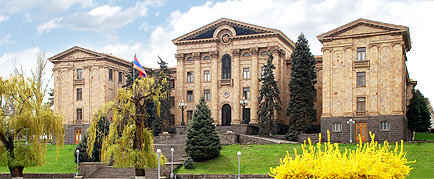10. The Venice Commission and ODIHR note with satisfaction that consultations among the political stakeholders and non-governmental organisations were broad and took place within an adequate timeframe in order to ensure that amendments of such fundamental texts receive the widest possible support amongst different political forces, civil society and expert community. This resulted in the adoption by the Parliament on 1 April 2021 of a first set of amendments to the Electoral Code concerning the abolition of the territorial candidate lists with 82 votes in favour and no abstentions or votes against.3 The signing of the amendments into law is pending.
11. The Venice Commission and the ODIHR have taken note that these amendments are supposed to be applied to the forthcoming early parliamentary elections, which are tentatively scheduled for 20 June 2021. Any legislative change taking place so close before an election should be in principle avoided as it leads to uncertainty. Additionally, the public and all stakeholders have to adapt to new rules in a tight time frame. The abolishment of the territorial candidates lists does not alter the electoral system proper, but it does appear to formally change the way votes are turned into mandates in terms of geographical representation.
However, the simplification of the proportional electoral system appears to enjoy a broad support by most of the political forces and the civil society. The changes have been discussed and prepared for a long time following an inclusive and transparent political process. In addition, although the next parliamentary elections would take place in less than three months, in purely technical terms the new system does not seem to have a major impact either on the capacity of the electoral administration to organise such elections, or on the understanding of the procedures by the voters.
12. The package of amendments is to be broadly welcomed as it addresses the majority of recommendations raised in previous Venice Commission and ODIHR opinions, as well as in ODIHR Election Observation Missions final reports, in particular those related to:
• Enabling the formation of governing coalitions by extending the required time limits and removing the restriction in the number of parties to form a coalition;
• Reducing the electoral deposit for political parties, thus facilitating the right to be elected;
• Increasing the type and amount of information provided to the electorate via the Central Electoral Commission’s website;
• Requiring the publication of the list of electors on the Central Electoral Commission’s website;
• Providing for wider coverage of the activities that constitute election campaigns and increased transparency of campaigns on the media;
• Offering clarifications on the use of administrative resources;
• Reinforcing provisions for campaign finance reporting and auditing leading to increased transparency;
• Strengthening the quota mechanism for promoting the participation of women as candidates;
• Including additional provisions to facilitate the participation of people with disabilities as voters.
13. However, the Venice Commission and ODIHR make the following key recommendations aimed at improving these amendments:
A. Reconsidering the provisions relating to electoral thresholds;
B. Clarifying the notion of “false information” so that it does not interfere with legitimate aims, for example investigative media, or stifle political debates;
C. Extending legal standing to allow for voters to submit challenges against election results;
D. Clarifying the meaning of “gross violation” as a ground of early termination of powers of a member of a constituency and precinct electoral commission;
E. Providing for longer time frames to submit an application for recount.
14. In addition for the purpose of the forthcoming early parliamentary elections, the ODIHR and the Venice Commission recommend that specific measures for holding elections during emergency situations including pandemic periods be stipulated in law or in infra-legal texts well in advance.
15. The Venice Commission and ODIHR stand ready to assist the Armenian authorities, in particular to facilitate the implementation of the revised Electoral Code and related legislation.




 11.07.2024
11.07.2024 11.07.2024
11.07.2024 11.07.2024
11.07.2024 11.07.2024
11.07.2024 11.07.2024
11.07.2024 11.07.2024
11.07.2024 11.07.2024
11.07.2024 11.07.2024
11.07.2024
